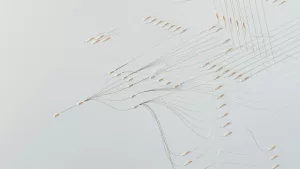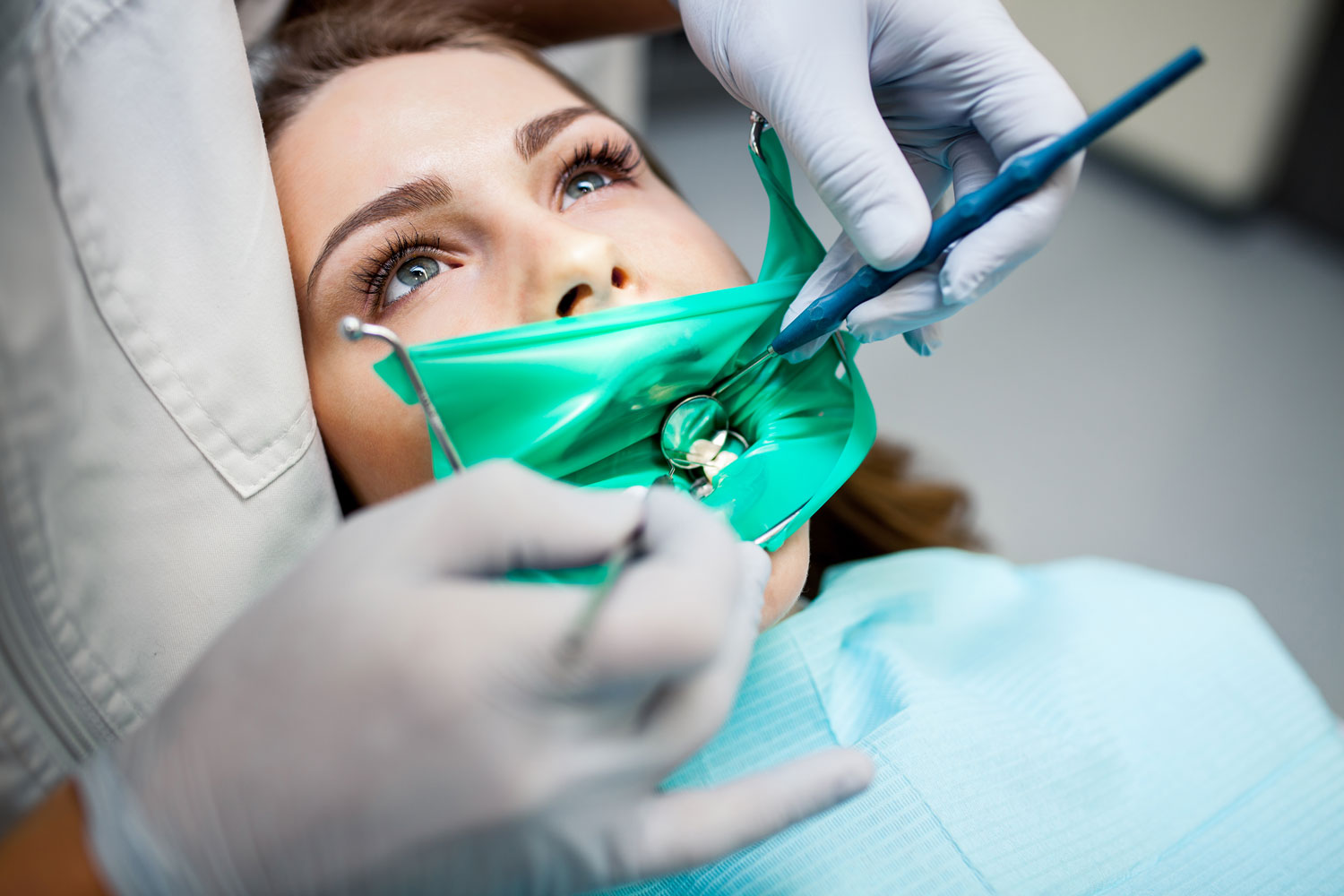Surgical procedures planned to be performed depending on the type of procedure to be performed and the condition of the patient are performed under local anesthesia, conscious sedation or general anesthesia. Within the scope of the study;
- Normal and surgical extractions of teeth,
- Impacted tooth extractions,
- Dental and zygomatic implant applications,
- Diagnosis and treatment of jaw cysts and tumors,
- Preprosthetic surgery operations,
- Sinus floor elevation procedures,
- Bone augmentations,
- Diagnosis, treatment and long-term follow-up of traumatic dental and supporting tissue injuries,
- Conservative and surgical treatments of jaw fractures,
- Orthognathic surgical operations,
- Treatments of jaw joint diseases.
Impacted Tooth
Wisdom teeth are the teeth located at the end of the jaw arch and the last to erupt into the oral environment. It is common for these teeth to be impacted. This is usually due to having a narrow jaw arch. Wisdom teeth do not need to be extracted in all cases; their condition should be determined through clinical and radiological examination and it should be decided accordingly whether or not extraction is necessary. Wisdom teeth may cause some problems if they remain impacted. The most common of these are pain, swelling, dissolution of the adjacent tooth, and infection. Extraction of wisdom teeth are generally short-term and simple procedures. No pain or ache is felt during the procedure. It is very normal to experience swelling and limited mouth opening after the procedure. There are some points to consider after shooting. If your doctor has prescribed the medication, you should use it regularly and as prescribed. It is normal to have bleeding at the check site after the procedure.
To prevent increased bleeding, you should rinse your mouth and not spit. On the day of the procedure, you should consume warm, soft foods that are not hot. You should not smoke for 3 days following the procedure. After the extraction of wisdom teeth, stitches may be required in the procedure area. In such a case, the seams should be kept clean and the stitches should be checked after 20 week and removed if necessary. Ice compresses should be applied to reduce swelling. It may take up to 1 week for the swelling to disappear completely.
Implants
Dental implants are titanium screws that mimic tooth roots. Thanks to the spacers that imitate the cut tooth on top, it allows the installation of porcelain teeth and replaces the missing tooth. Today, it is one of the treatment options used in the treatment of missing teeth. Since implants are the treatment option closest to the chewing function and comfort of natural teeth, they are the most preferred treatments for missing teeth. It can be used in many cases, from single tooth missing to total missing teeth. When used in cases of single missing teeth, it allows tooth placement without the need to cut and reduce the size of adjacent teeth, as in conventional bridge prostheses. It eliminates the need for removable teeth in cases where all teeth are missing and provides stable dental comfort. In some cases, both implants and teeth can be made at the same time, eliminating the need for patients to remain toothless. This situation must be decided after an intraoral examination.
Implant treatments are procedures that can be performed under local anesthesia. In particular, single tooth implant surgery is a painless procedure that often takes less time than tooth extraction. The time it takes for implants to fuse with the bone is about 2 months. Aftercare is very important. Just like our teeth, if they are well taken care of and cleaned well, they can be used for a lifetime.
Joint Treatments
Diseases occurring in the jaw joint cause nutritional problems. For this reason, it is an important problem. Pain in the joints, joint noises, sensitivity, limitation in jaw movements, pain and irregularity in the muscles are the complaints that occur in jaw joint problems. This problem generally begins in the teenage years and gradually causes more pain over time.
Jaw joint; It is located between the lower jaw bone and the temporal bone. This joint has speech and chewing functions. There is a structure called a disc between the two bones, which ensures the harmonious functioning of the two bone surfaces. Ligaments around the joint ensure that the joint functions correctly. Chewing muscles regulate the functioning of the jaw joint. Teeth clenching, teeth grinding, tooth alignment disorders and some treatments for them; It may cause strain on joints and ligaments. This causes jaw joint pain.
Cyst Treatment
Dental cysts are a type of dental disease that silently progresses to the tooth roots or gums. This infection in the tooth can spread to the surrounding tissues, tooth roots and surrounding bones. In this case, a problem called abscess occurs. When this infection reaches the bone, tooth loss occurs. Complaints such as swelling and pain in the tooth roots may reveal this disorder. If the infection kills the tooth root, there is no feeling of pain. However, the disease can progress slowly and damage the adjacent bone. In addition, pus may form in a part of the infected area and serious problems such as jaw damage may occur. Since it does not usually cause any pain in the tooth, it is not possible to diagnose the disease early. Cysts, which are abnormal pathogenic structures that develop in any part of the jawbone or tooth roots, need to be removed by surgical methods, as healing cannot be achieved with drug treatment. The fluid in the cyst sac mixes with the blood over time, causing the infection to spread to the internal organs. With this situation, very serious health problems occur. Therefore, dental cysts should be treated without delay.
Apical Resection
When damage to teeth due to reasons such as inadequate oral care and malnutrition is not treated, bacteria in the mouth increases. Bacteria concentrate in decayed teeth and can sometimes reach the tooth root. This causes inflammation of the tooth root. When the tooth becomes inflamed and decay progresses, root canal treatment is applied. However, in some cases, root canal treatment is not enough to save the tooth. After a failed root canal treatment, root end surgery must be performed to save the tooth. This procedure is called apical resection. Apical resection; It is a minor surgical procedure performed to save at-risk teeth and prevent potentially serious complications. With this procedure, the root tip of the tooth and the surrounding inflamed tissue are removed.
Sedation and general anesthesia may be needed in people with a fear of dentists, in people with high nausea and gag reflexes, in people with physical and mental disabilities, and in surgical procedures that may take a long time.
By performing these treatments on a daily basis, the aim is to ensure that the order of the disabled patient and the family is not disrupted, and that the treatments are carried out in a single session. Your dentist will evaluate your concerns and doubts and determine the most appropriate anesthesia method for you. In sedation applications, relaxation and short-term forgetfulness are achieved thanks to the medications given to the patient. The patient is conscious but has a slight drowsiness. He can breathe on his own, but he doesn't remember anything after the procedure. In general anesthesia, the patient is completely anesthetized and intubated. Thanks to the respirator, oxygen is given to the patient and the patient can breathe. The patient is completely asleep until the procedure is completed.








